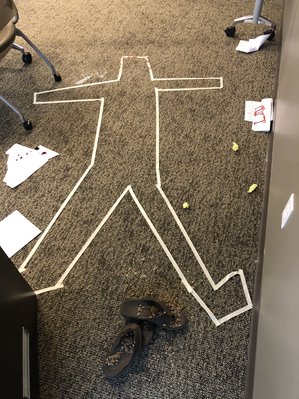ASGCT’s Inaugural Lab Week Brings MPS Teachers Back to School
Grant Holley, PhD - September 09, 2022
This past summer, we worked with Milwaukee teachers on science experiments that we hope they'll take back to their classrooms.
.png)
Can you remember how old you were when you first imagined yourself having a career in science?
Think back to what first sparked your interest. Maybe you can recall an activity you did at school that excited you, or a teacher who encouraged you along the way. At ASGCT, we want to make sure more students, particularly minorities, have these opportunities in science, and we took our first step towards that goal this summer by holding ASGCT’s inaugural Lab Week.
Over four days at the ASGCT office, staff worked with a few Milwaukee teachers and a student intern from UW-Madison to perform experiments related to gene and cell therapy, like DNA extraction, gel electrophoresis, and CRISPR. Thanks to a partnership between Milwaukee Public Schools (MPS) and ASGCT’s Diversity, Equity, & Inclusion (DEI) Committee, the teachers will be able to pilot the experiments in their own classrooms this fall with equipment provided by ASGCT.
This effort is ASGCT’s first push to increase student interest in careers in science and medicine. Research shows that students’ interest in science declines as they move from elementary school through middle school. By high school, many have already made up their minds about whether they will continue to voluntarily study science
. Additionally, minorities entering college intending to study science, technology, engineering, and math (STEM) decide to switch out of STEM at rates much higher than their non-minority peers.
So how do teachers get students hyped up about STEM? Show them that it’s all around us, “from the way your body functions to the way an aircraft flies in the air,” says Krista Russell, a science teacher at Marshall High School.
“You have to expose students to things they might not have heard or thought of to pique their curiosity, and then allow them to explore their interests,” Russell says
Last year, Russell did this in her own classroom by piloting an immunology course for her students. They discussed topics ranging from COVID-19 conspiracies and the importance of presenting evidence, to designing the “perfect person” and issues that come with gene editing.
She says many of the aspects from Lab Week will help supplement her curriculum for the upcoming year, like an ethics discussion and using electrophoresis gels to run DNA. Most of her students aren’t familiar with the field of biomedicine, “so I’m glad I’m able to be that bridge.”
Next year, we’re already thinking about inviting more teachers and extending the program to five days. We might even enlist the help of local professionals, who could show students how they’ve turned their scientific interests into careers.
Our hope is to take this model and share it with other professional organizations to help them create similar programs in their hometowns. I’m looking forward to meeting back up with the teachers this fall to see the impact these experiments are having on students.
|
|
|

On the final day of Lab Week, the group solved a murder.
|
|
|
|
|
Dr. Holley is ASGCT’s Director of Science and Education